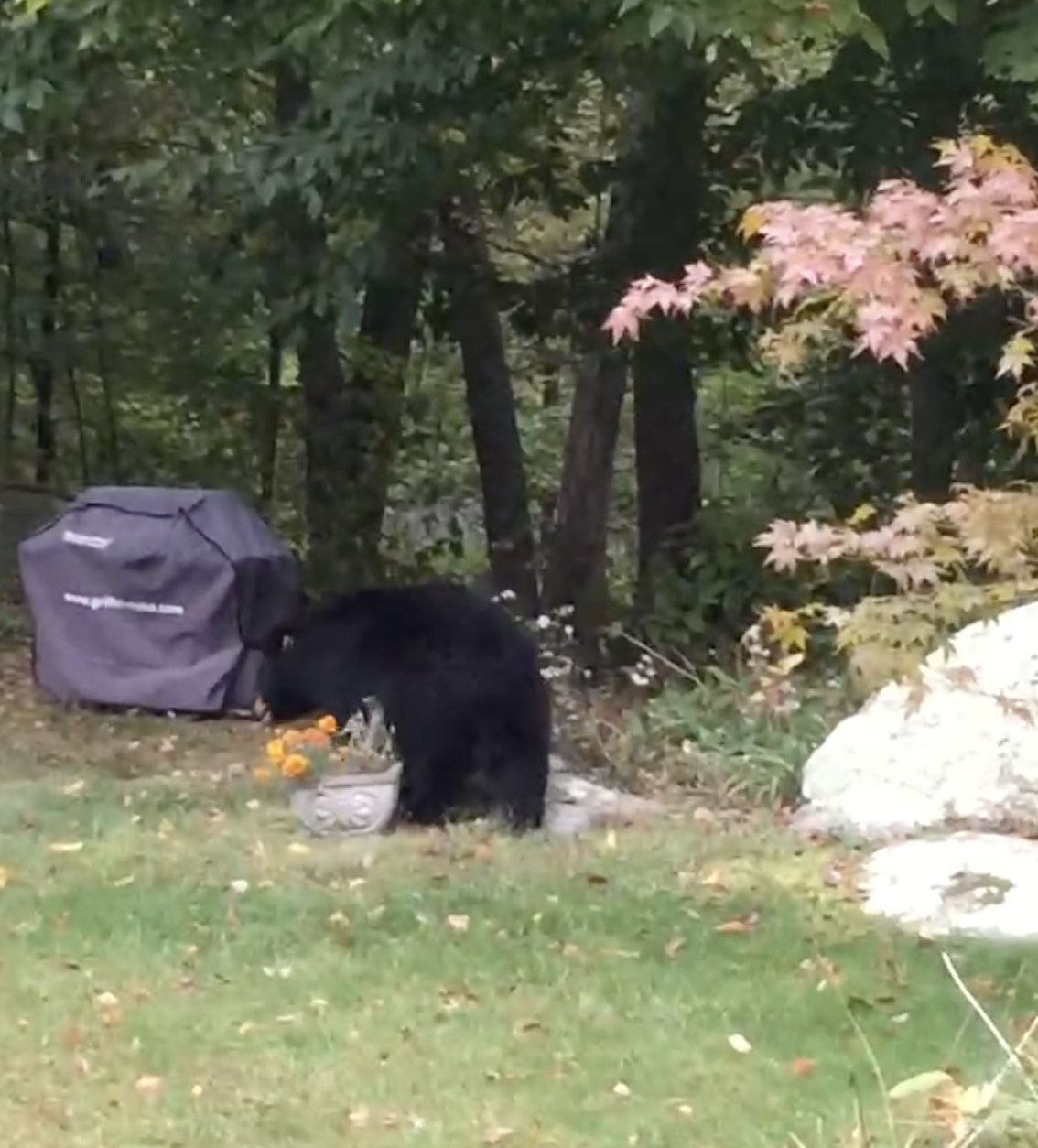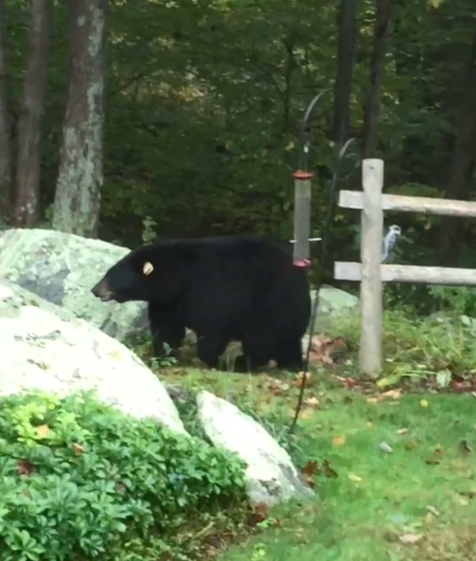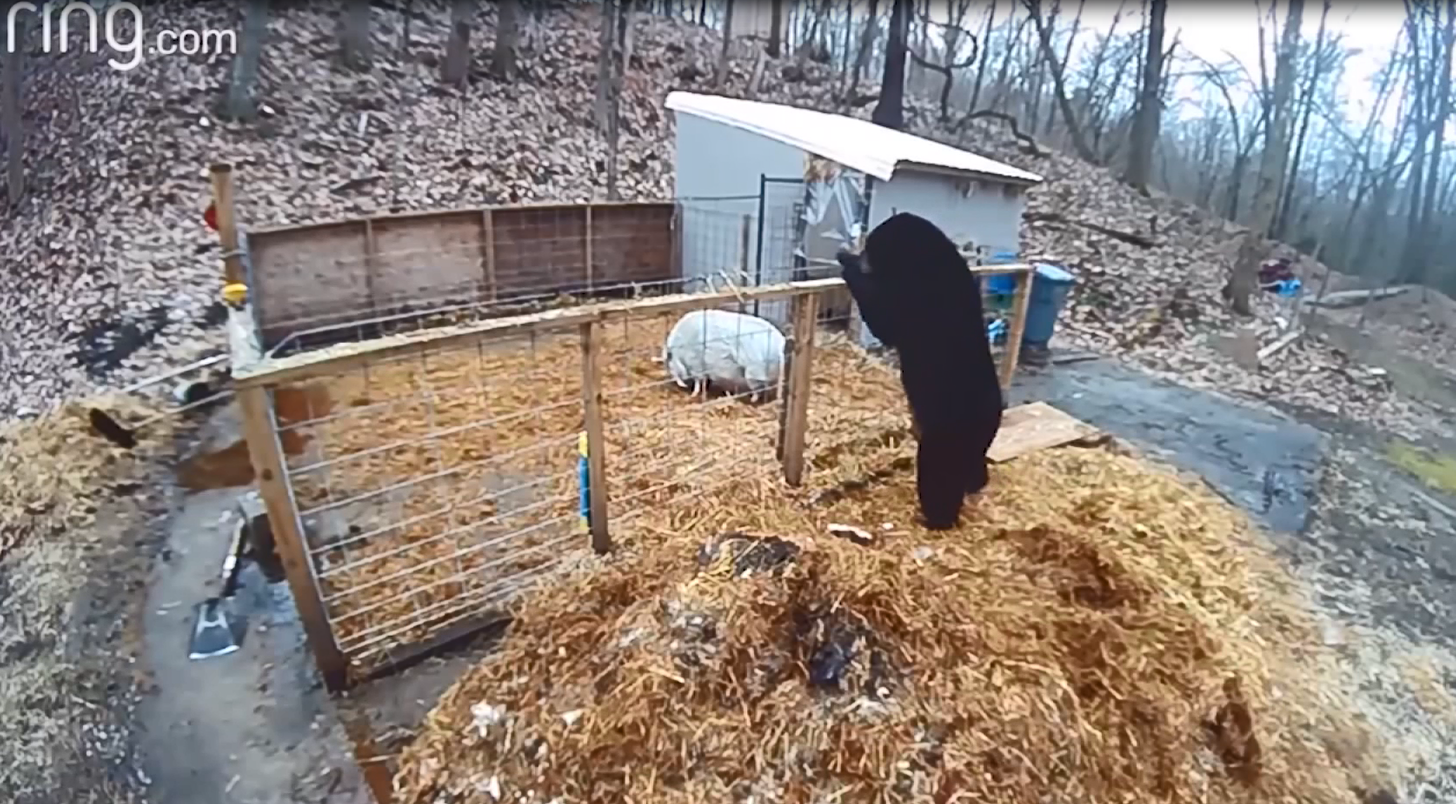More Stories
Black bear encounters at your home can be alarming, but there are ways to safeguard your property and discourage bears from getting too close. While bears avoid humans, they can be attracted to food sources in residential areas.
Check out these helpful tips from the Humane Society of the United States, the New Jersey Department of Environmental Protection and the Connecticut Department of Energy and Environmental Protection on how to prevent bear encounters at your homes and in your yards.
PROTECT YOUR GARBAGE CANS
Try to leave your trash cans out just before pickup and don't leave them out overnight. Keep your cans indoors if possible in a space such as your garage or shed, but remember that bears can tear through screens. The same goes for recyclables, not just regular household garbage. You can pour a bit of ammonia into garbage bags and cans to mask the smell. Bear-resistant cans and container enclosures are available for purchase.
CLEAN YOUR BARBECUE
Bears can sniff the drippings from your barbecue. You should try to keep your grill away from your house when not in use and clean it regularly and thoroughly with ammonia or bleach. Similar to your trash cans, store your grill in a shed or garage if possible when you're not using it.
 Bear wandering past a barbecue in Connecticut.
Bear wandering past a barbecue in Connecticut.
RETHINK BIRD FEEDERS AND COMPOST PILES
The food scraps in a compost pile and the bird seed in a birdfeeder are easy targets for a bear. The Humane Society says birds can "make do with naturally available foods" but that people who still choose to use birdfeeders should keep them far from houses. Make sure to clean up any seed that spills onto the ground. Connecticut's DEEP recommends pulling feeders from late March through November and warns to remove a feeder if a bear approaches it in the winter. The smell of food in a compost pile, even if buried, will attract bears - so keep compost in an enclosure. The Connecticut DEEP says to avoid using meat or sweet-smelling fruit rinds in your compost. The agency also recommends using lime to mask the compost smell.

PROTECT YOUR PETS
Make sure to keep an eye on your pets when they're outside in the yard. If possible, bring livestock into a secure, enclosed building overnight. The DEEP says to utilize electric fencing or reinforced wire with metal strapping around chicken coops, beehives and livestock - and even around crops or berry bushes. The agency says bears rarely harm horses, cattle, cats and dogs - but they may attack sheep, goats, pigs, chickens, llamas and rabbits.
The DEEP says to keep your dogs on a short leash while out for walks and hikes in bear country, as an unleashed dog could be perceived as a threat.
 2022 Ring footage of a bear breaking into a pig enclosure
2022 Ring footage of a bear breaking into a pig enclosure
DON'T LEAVE PET FOOD OR LIVESTOCK FEED OUT AT NIGHT
Fans of "The Sopranos" might remember the bear that was attracted to Tony's duck feed in the backyard. It's true - bears can be sniff out pet food or livestock feed that is left outdoors. Try not to leave any out, especially overnight. Use an airtight container for storage if it must be kept outside.
DON'T FEED THEM
This may seem obvious, but don't purposely feed bears or leave scraps out for them. Black bears are usually fearful of humans, but bears and other animals may start to associate people and places as food sources when this happen and could become aggressive/dangerous.
More from News 12
2:11

Former special education teacher transforms room into accessible library
0:52

Over 30 displaced in Paterson house fire; missing man found safe safe
1:51

New Jersey residents who rely on SNAP say their money’s been swiped
0:40

Jersey Proud: Village Foster Family Closet reopens in Point Pleasant
0:15

Paterson man accused of attempted murder in November shooting
0:29
